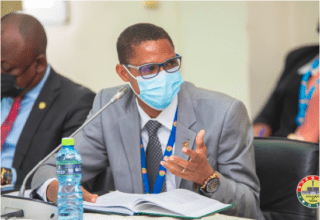
Around the world, countries are steadily shifting from responding to the COVID-19 pandemic to the recovery phase. And for many, tourism will play a key role here, not least due to its importance in job creation, supporting livelihoods and driving inclusive development.
But tourism itself has been hit hard by this unprecedented crisis. During the first five months of the year alone,the world welcomed 300 million fewer international tourists than in 2019, UNWTO data shows. This translates into around US$320 billion in lost revenues, triple the amount lost in 2009 during the global economic crisis.Looking atAfrica, there has been a decrease of 47% in international tourists. This sudden and unexpected fall places many millions of jobs and people’s livelihood at risk. Moreover, as the United Nations Secretary-General Antonio Guterres made clear in his landmark Policy Brief on “COVID-19 and Transforming Tourism”, it also places the progress we have been making towards using tourism as a driver of the Sustainable Development Goals, including those relating to gender equality and the conservation of our cultural and natural heritage, in jeopardy.
So, how can we get tourism moving again? Above all, it is a matter of trust and confidence. People will only travel again if they feel safe. Moreover, they not only need to be confident that they won’t bring the virus home with them, many also feel a responsibility to not spread it themselves.
In this regard, Africa has certain notable advantages over other global regions. For most international tourists, Africa is a prime destination for nature tourism – to see wildlife or to experience unspoiled landscapes and habitats. This lends itself to social distancing, making it relatively easy for every part of the tourism value chain to introduce strict hygiene protocols. Furthermore, Africa, as the World Health Organization (WHO) statistics show, has been the least affected of all global regions. Due to a combination of factors, infections across the continent have been considerably lower than those recorded elsewhere in the world, and new cases continue to slow.
All this presents an opportunity for African countries to market themselves as safe destinations, as governments across the continent are increasingly realizing. Indeed, when we asked our African Member States how they would like to see UNWTO adapt our 2030 Agenda for Africa (a plan of action for growing tourism over the next decade) to better reflect the changed circumstances caused by the pandemic, many singled out promoting ‘Brand Africa’ as a key priority. On the back of this feedback, we have launched a special Branding Africa Challenge to identify the best marketing ideas and strategies that will allow prospective tourists to see a different, more positive side to the continent. This practical assistance in marketing and promotion is being rolled out alongside other areas of support that UNWTO is offering all our Member States, including helping to train and up-skill tourism workers so that they can adapt to the new reality. At the same time, we’re working closely with Members to promote innovation and entrepreneurship, recognizing that overcoming unprecedented challenges often requires new ideas and new voices.
However, even as countries lift travel restrictions and confidence returns, international tourism will not return overnight. That is why UNWTO is also working with Member States to help them realize the potential of both domestic and regional tourism. With more than 1 billion citizens, the youngest population of any continent, and a growing middle class, there is a significant market for this kind of travel.
Capitalizing on this will not only help support those jobs who are dependent on a strong tourism sector, it will also protect tourism businesses, 80% of which are small enterprises. Furthermore, across Africa, the revenues generated by tourism are a key source of funding for conservation projects as well as a source of livelihoods for rural communities and particularly for women and youth. Growing domestic tourism while at the same time preparing for the return of international tourism will, therefore, allow the many social and economic benefits the sector provides to return.
Just as individuals have a role to play in getting tourism moving again – by travelling domestically and by being a responsible tourist – so too do governments have a responsibility to support a sector upon which millions of people depend. There is a pressing need for financial assistance and fiscal policies that support tourism businesses, especially small enterprises. Governments also need to work together to reopen borders in a coordinated manner. This is no time to go it alone. And, looking ahead, the Open Skies Policies being implemented by the African Union should be embraced fully, another example of where strong and determined leadership will make a real difference.
In conclusion, the ability of the tourism sector to bounce back has been proven time and again over the years. The sector has also shown an ability to adapt and respond to challenges. Learning from the lessons of the past while also embracing innovation and new ideas will be pivotal as we restart tourism across Africa, and so reestablish the sector as the ultimate driver of growth and opportunity for all.
Source: citinewsroom.com

















